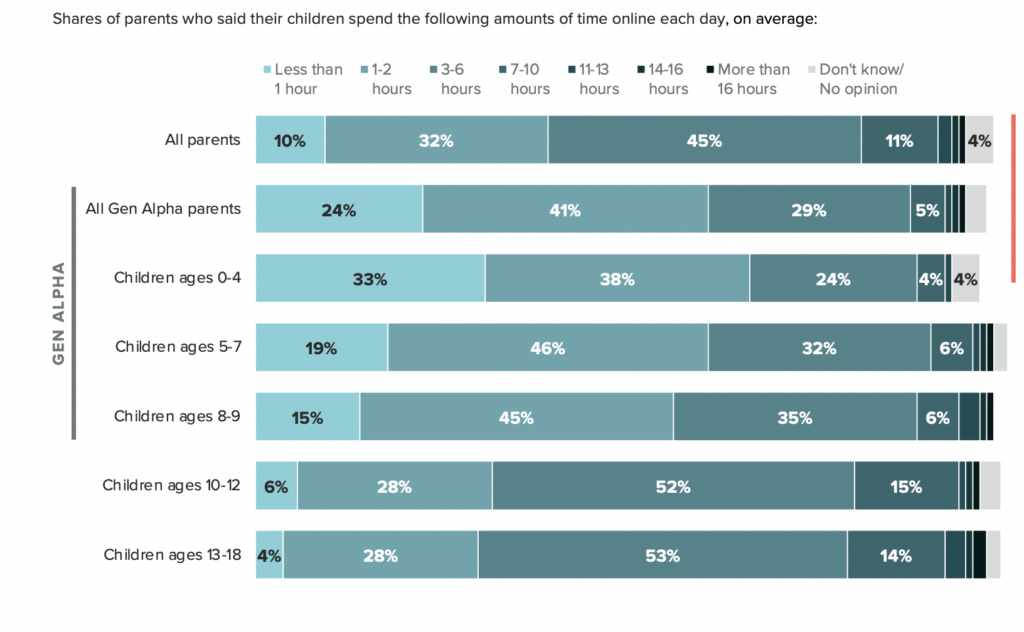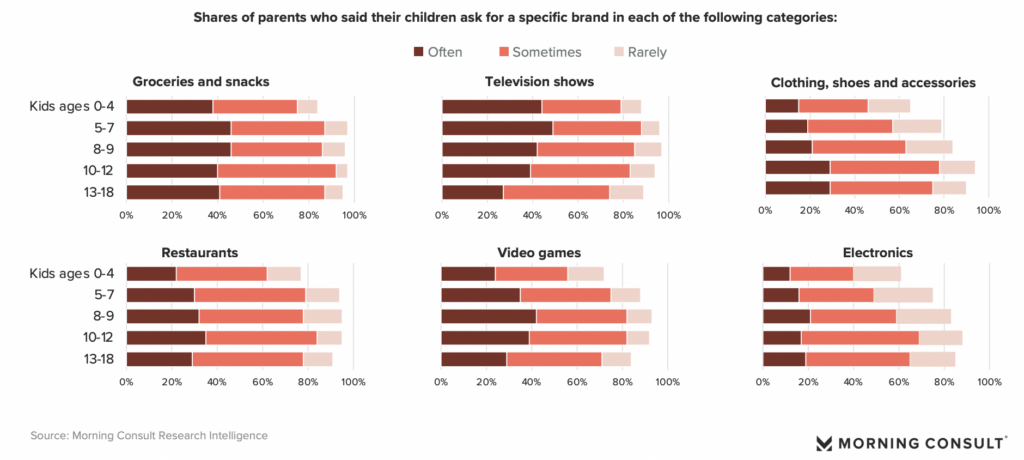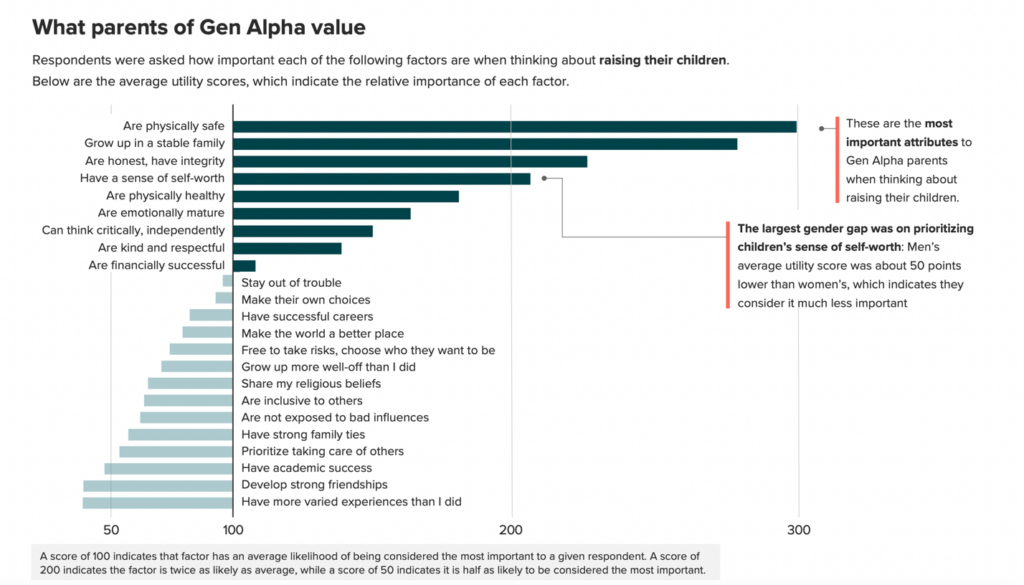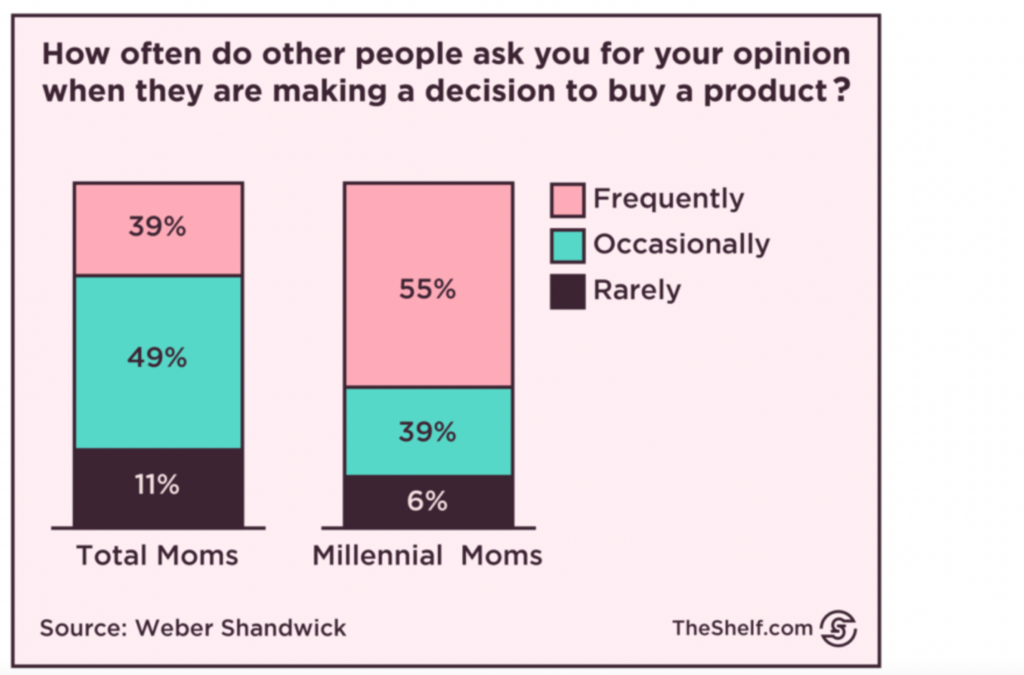Gen Alpha. Depending on who you ask, they might be considered our best hope for the future or a real piece of work, but for marketers, they represent potentially billions in buying power in the next 5 years as they reach 18 and begin making adult brand choices.
Family First: Why Brands Have To Address The Values Of Millennials and Gen X To Win Gen Alpha
Luckily for marketers, Gen Alpha is a true digital native generation with strong brand identification. But marketers can’t connect with them directly via marketing due to COPPA—so that means winning the trust of Millennials, and in some cases, Gen X, their parents. In this article, we’ll look at Gen Alpha, how they are being reared and how marketers can win their parents’ engagement and trust.
Born between 2010 and 2023, Gen Alpha are most frequently the children of Millennials and Gen X. Diverse, urban and digitally brand aware, Gen Alpha is the first generation to spend hours interacting with digital media as toddlers—and holding brand awareness from kindergarten.

The majority of Gen Alpha owns a tablet (54 percent), and over one-quarter lives in a household with a VR headset. That proximity to digital content goes well beyond exposure to older siblings’ or parents’ activities. For example, 46 percent of 5-7 year-olds spend 1-2 hours daily online.
In addition, well over 75 percent of children 4 and under showed brand recognition for groceries and snacks and asked for those brands specifically.


With their Millennial and Gen X parents guiding and approving their brand choices, brands that align with Gen Alpha parents’ values and priorities can forge lifelong relationships with Gen Alpha.
When attempting to connect with Millennial and Gen X parents, research suggests that brand marketers should be mindful to:
Highlight values. Articulate their alignment with values that Millennials and Gen X focus on when choosing brands. Millennials prioritize sustainability and other ESG concerns when choosing brands to purchase from, so if brand marketers have these values to showcase, this may provide a competitive edge when attempting to reach Gen Alpha through their parents’ purchasing choices. Millennial parents prioritize wellness, independence and a broad worldview. Brands that offer tools or pathways to help Gen Alpha children nurture these traits or experience moments to exercise these traits may win Millennial loyalty.

Be creative with social strategy. While Gen Alpha uses digital media frequently, 75 percent of Millennial parents want to keep their children off social media as long as possible, so marketers should not rely on traditional social marketing tactics to influence Gen Alpha. However, younger consumers are heavily invested in short-form video, so marketers should lean into video content—such as YouTube, the choice of 52 percent of Gen Alpha—that appeals to their targeted demographic on and off social platforms.
Understand that Millennial parents are often striving for “perfection” in lifestyle choices. While Millennials don’t believe they’re “the greatest generation,” a higher percentage of Millennial moms (80 percent) than Gen X (70 percent) think that being a “perfect” parent is a legitimate goal to work towards. That often translates into seeking advice from peers in addition to heavy research before every purchase.

According to Weber Shandwick data, 55 percent of Millennial moms state that they frequently give advice to members of their social circle on which products to buy. So, influencer relationships and product and brand transparency are key to raising brand awareness and winning social circle trust that will drive conversion.

